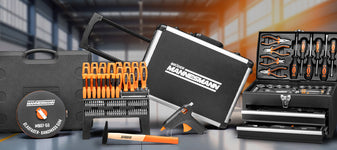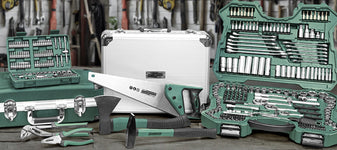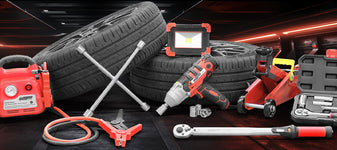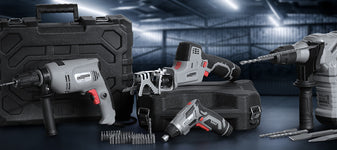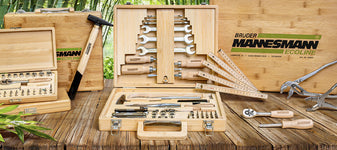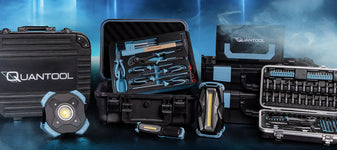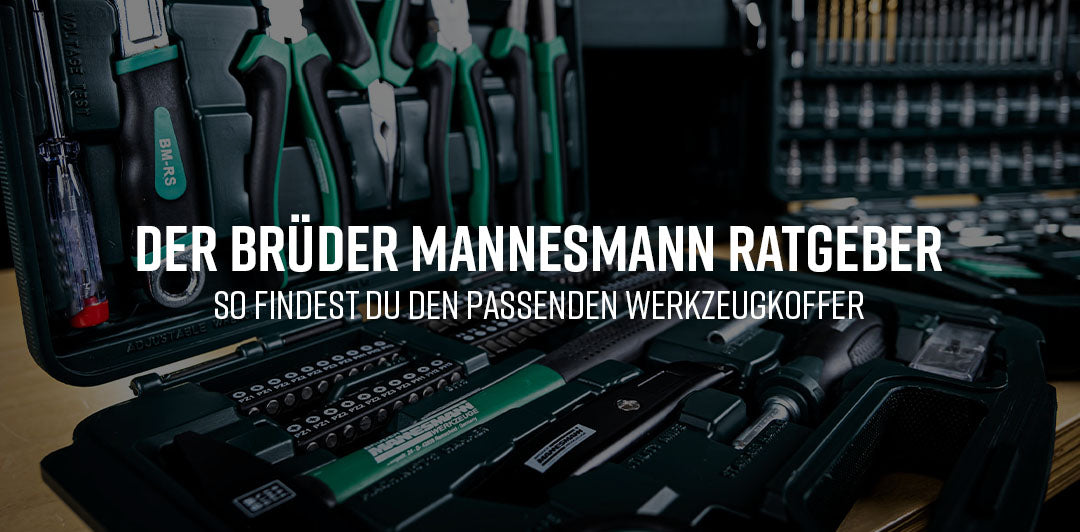Whether assembling a cabinet, renovating an apartment, or tinkering in the basement, sooner or later every DIY enthusiast asks themselves the question: Should I use hand tools or power tools? Both options have their advantages and disadvantages.
🔧 Hand tools – Simple, proven and precise
Hand tools are the classics among tools. Screwdrivers, hammers, handsaws, and files – they don't require electricity, are easy to handle, and give you complete control while working.
Advantages:
-
Ideal for precise work
-
Cheap to buy
-
Hardly any maintenance required
-
Ready for immediate use, independent of the power grid
Disadvantages:
-
Requires more strength and patience
-
Often tedious for large projects
-
Quickly reaches its limits with hard materials
🔌 Power tools – Fast, powerful and efficient
Drills, cordless screwdrivers or sanders – power tools do the hard work and make many tasks much easier.
Advantages:
-
Saves time and energy
-
Ideal for large projects
-
Versatile thanks to interchangeable attachments
-
Consistent and powerful working method
Disadvantages:
-
More expensive to purchase
-
Maintenance effort (especially batteries)
-
Often heavier and louder
-
Power dependent
🧰 Starter package: These are the tools you should definitely have
Hand tools – basic equipment for beginners
You should definitely own these tools. They're versatile and ideal for small repairs or everyday projects:
-
Phillips and slotted screwdrivers in various sizes
-
Hammer (e.g. a locksmith's hammer)
-
Tape measure or folding rule
-
spirit level
-
cutter knife
-
Combination pliers and side cutters
-
Allen key set (e.g. for furniture)
-
Hand saw for wood
-
File for metal or edge processing
Power tools – basic set for beginners
If you work regularly or plan larger projects, these tools are particularly helpful:
-
Cordless screwdriver with bit set
-
Impact drill for masonry or ceilings
-
Multifunctional device (e.g. for sawing, grinding or cutting)
-
Orbital sander or eccentric sander for smooth surfaces
-
Extension cable or multiple socket
-
Replacement battery and suitable charger for battery-operated devices
Tip: When it comes to power tools, it's worth investing in quality – they last longer, work more reliably, and are simply more fun to use.
🧱 Which tools are worthwhile for what?
Whether you work better with hand or power tools depends on the project:
Minor repairs or spontaneous jobs? → Hand tools are usually sufficient.
Larger projects with many consistent work steps? → Power tools save time and effort.
No power connection at the job site? → Hand tools offer more flexibility.
Conclusion: It’s all about the mix
It's not about which tool is "better"—it's about which one is better suited to your project. A mix of both is best:
A solid basic set of hand tools for everyday use and a few power tools for larger or frequent jobs.
Discover our hand and power tools – ideal for your next project.







